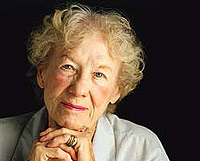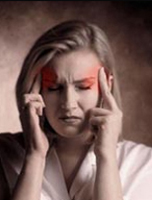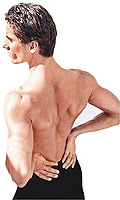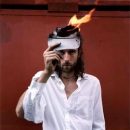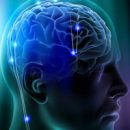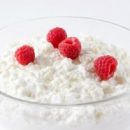Every 6 seconds stroke breaks someone's life. Every sixth man transfers stroke. Together with cardiovascular diseases, stroke is the main cause of mortality in the world.
Content
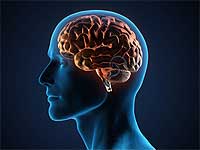
Within the framework of the World Stroke Day, established by the World Stroke Organization, specialists of the whole world on October 29 of each year try to attract the attention of people to this serious problem. After all, up to 80% of premature heart disease and stroke can be prevented . Not by chance the motto of a stroke day in 2012-2013.G. became phrase «I care».
According to the World Stroke Organization, 15 million people per year tolerate stroke. Of these, 3 million — Patients with atrial fibrillation.
In Russia, stroke ranks third among the causes of death of Russians: about 200 thousand people die every year. About half of those who have undergone a stroke over the next 5 years face this problem again.
Ivan Bnararik, COO chairman of the Russian-American Foundation «Health», General Director of the company «Beringer Inghelheim»: «In modern society and medicine, quite a lot of attention is paid to the topic of treating cardiovascular diseases, while prevention often remains in the second plan. Meanwhile, common and medicinal measures can be prevented not only the diseases themselves, but also their serious consequences, such as stroke. Prevention of stroke — the most important task over which we are constantly working. Our company, together with the International Heart Federation and other medical organizations in the world implements the initiative «1 Mission 1 Million», In which we contribute to the dissemination of information on the importance of stroke prevention. And today we managed to some extent even «Perfect» This mission — After all, only innovative therapy «Beringer Inghelheim» more than 2 million patient-years are used, and it allowed to prevent tens of thousands of strokes».
The most common stroke risk factors: hypertension, ischemic heart disease, elevated cholesterol level, atrial fibrillation. As a rule, important factors contributing to the development of these diseases is an unhealthy lifestyle: improper nutrition, insufficient motor activity, tobacco and alcohol use.
Reducing the risk of stroke will help rejection of bad habits, the introduction of physical exertion, as well as the revision of its diet in favor of whole grain products, antioxidants (vegetables and fruits), food, rich in magnesium (buckwheat, oats, almonds, sea cabbage) and potassium (prunes, raisins , beans). However, if a person already has heart disease, general measures for prevention are not enough.
Dmitry Napalkov, d.M.N., Professor of the Department of Faculty Therapy No. 1 Therapeutic Faculty of the First MIMM name and.M.Sechenova: «General recommendations for patients on stroke prevention for anyone are not a secret. Doctors always advise their patients to abandon smoking, oily food, increase the number of vegetables and fruits in the diet, as well as introduce moderate physical exertion in everyday practice, appropriate age and health status. That is, each person can make a contribution to its own protection against stroke. But if we are already talking about the presence of a number of diseases, such as hypertension or atrial fibrillation, then do not do without medicinal therapy. It is good that modern drugs not only help take the disease and risk of stroke under control, but also open new opportunities. For example, a new generation of anticoagulants, in particular, the direct thrombin inhibitors allow you to maintain a normal lifestyle that does not require constant laboratory monitoring of the condition of the blood coagulation system and a number of hard restrictions in the diet. However, the reception of drugs does not cancel compliance with the rules of a healthy lifestyle, regardless of age».
An important role in stroke prevention has exercise. Give preference to walks in the fresh air, swimming, biting, daily morning gymnastics. They will even suit patients with cardiovascular problems — However, in each case, the patient should discuss optimal physical exertion with the attending physician.
Reducing stress levels, day mode and sufficient dream will also help to improve the body.
Be careful to yourself and your loved ones, watch the elderly parents constantly accepted prescribed drugs and be healthy!
About the program «1 Mission 1 Million»
Program «1 Mission 1 Million — Getting To the Heart Of Stroke» — This is a global initiative to raise awareness of a society about the danger of strokes. It is held with the support of leading health experts, as well as more than 40 medical and professional organizations, including AntiCoAgulation Europe, Arrhythmia Alliance, Atrial Fibrization Association, Stroke Alliance for Europe and World Heart Federation. Financial support program provides Boehringer Ingelheim.
In 2011, 184 appeals under the program «1 Mission 1 Million», which collected two million signatures of individuals, as well as medical and professional organizations and health centers in 36 countries. In each handling, an approach to raising awareness of insults associated with atrial fibrillation, as part of a particular community through research, selection and creation programs for patient groups. Program «1 Mission 1 Million» Allocated 1 million euros for financing 32 winning projects in 18 different countries from Malaysia to Canada.
This year the program «1 Mission 1 Million» seeks to develop the success of 2011 and cover an even more circle of people around the world. Program «1 Mission 1 Million» It will continue to support projects in different countries aimed at helping the prevention of insults associated with atrial fibrillation. Program «1 Mission 1 Million» It seeks to provide a platform for those who suffer from this disease, those who cares for such patients, and everyone who is ready to share their stories related to atrial fibrillation to inspire other people to prevent strokes caused by atrial fibrillation. This appeal is designed to combine people around the world to support initiatives aimed at achieving the goals of the program «1 Mission 1 Million».



